Finding Freedom In the Truth: Josh & Sean McDowell
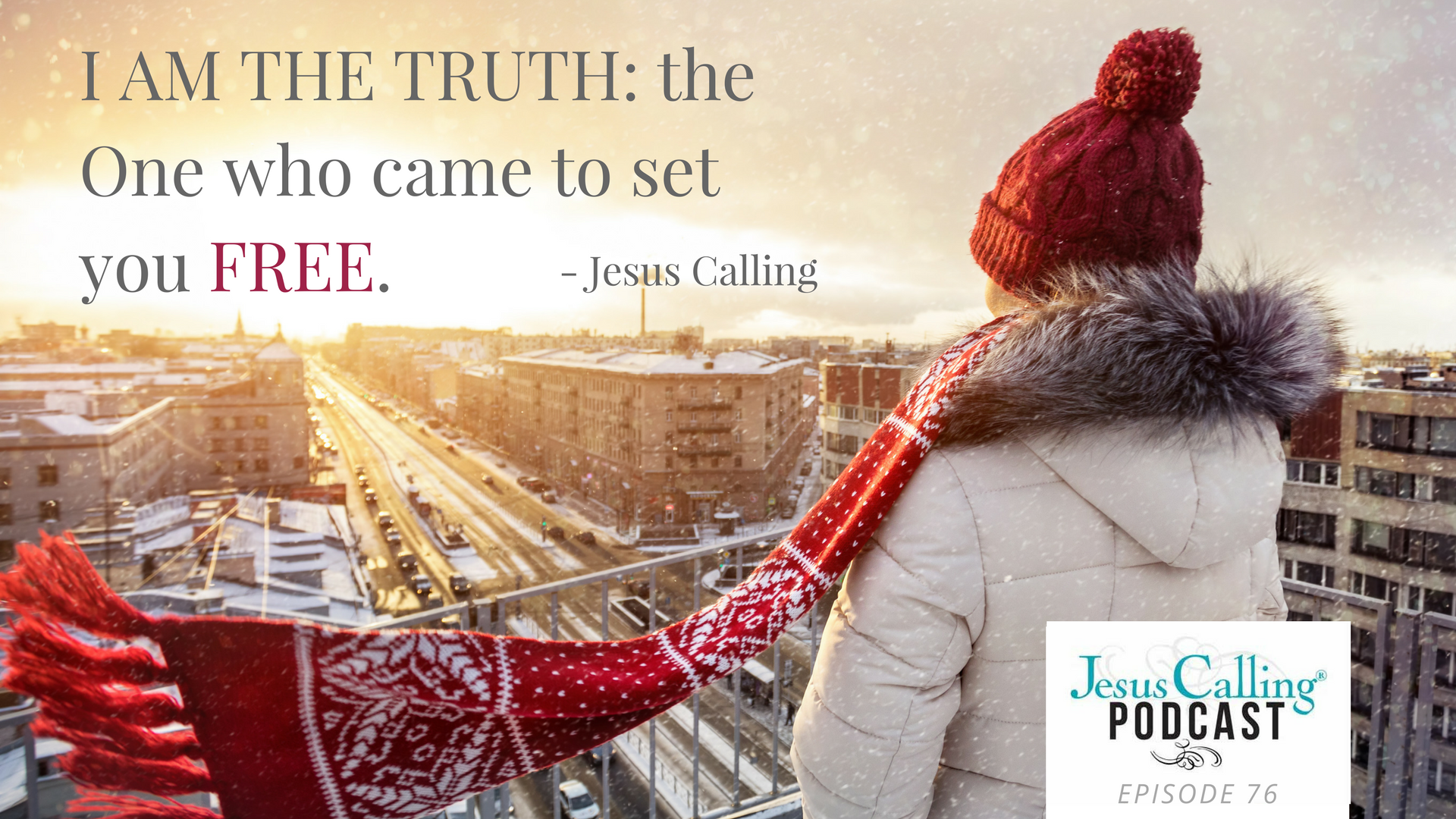
Josh & Sean McDowell are writers and teachers who are passionate about bringing the truth of the Gospel to a world hungry for the knowledge of Christ. As a young man, Josh McDowell considered himself an agnostic. Because of a troubled and hurtful home life, he truly believed that Christianity was worthless. However, when challenged to intellectually examine the claims of Christianity, Josh discovered evidence for the reliability of the Christian faith. Dr. Sean McDowell is a gifted communicator with a passion for equipping the church, especially young people, to make the case for the Christian faith. They each share about their early years and what motivates them to bring evidence for the veracity of Scripture to those who need the freedom truth brings.
Narrator: Welcome to the Jesus Calling Podcast. Today, we speak with father/son writers and teachers, Josh & Sean McDowell. As a young man, Josh McDowell considered himself an agnostic. Because of a troubled and hurtful home life, he truly believed that Christianity was worthless. However, when challenged to intellectually examine the claims of Christianity, Josh discovered evidence for the reliability of the Christian faith. Dr. Sean McDowell is a gifted communicator with a passion for equipping the church, especially young people, to make the case for the Christian faith. They each share about their early years and what motivates them to bring evidence to a world that is hungry for the knowledge of Christ.
Finding Freedom In the Truth: Josh & Sean McDowell- Jesus Calling Podcast Episode 76
Josh: I’m Josh D. McDowell I’m an author and speaker. I’m with Campus Crusade for Christ. I’m a husband, a father, a child of the King, and I absolutely love what I do.
Sean: I’m Sean McDowell. I’m a professor at Biola University’s Talbott’s School of Theology in the apologetics department. I also teach high school part time at a private school for freshmen all the way through seniors. Then I get to speak and write a little bit and have been married to my high school sweetheart 17 years, and we have three great kids.
Josh: I grew up in Union City, Michigan, and by the time I went to the university, I was very bitter…hurt…mad. My father was the town alcoholic growing up, and when you’re from a small town, everybody knows it. And it seemed like, realistically, when he wasn’t trying to kill my mother, I was trying to kill him. My one sister killed herself. My other brother sued my parents for everything they had. Another sister ran off to the army and never came back, and I was left as the baby to deal with it all.
I carry a lot of baggage with me to this day, but coming to know Christ the Savior was a big step forward in it.
When I got to university, I saw this small group of people–8 students and 2 professor–and their lives were different. They seemed to have a genuine love for each other and for people outside their group, and I wanted it. So I made friends with them, and I said, “What in the world changed your lives? Why are you so different from the other students and the professors on campus?” And this one young lady just looked at me and said two words: “Jesus Christ.” I said, “Oh, for God’s sakes, don’t give me that garbage.” Well, it ended up that they made me so mad, I set out to write a book against them called Evidence That Demands a Verdict and became a Christian.
Healing Through the Love of a Heavenly Father
All the evidence in the world did not bring me to Christ. All the evidence in this huge book, this new book, Evidence That Demands a Verdict, none of that brought me to Christ. What it did was get my attention. It’s like I was slamming the door on God, and He stuck his foot in the door with the evidence. Once I believed the Bible was true,once I believed that Christ was more than human and probably the Son of God, then and only then did I even consider the message of the Bible. As I started to read and study the Bible, what brought me to Christ was the love of God. “I have loved you with an everlasting love. With tender kindness, I have drawn you.” (Jeremiah 31:3)
And the reason is this: people at Kellogg college knew my background because they grew up about 23 miles from there, and they would try to help me by saying, “Josh, there’s a heavenly Father who loves you. There’s a Father in heaven who loves you.” That didn’t bring me joy. That brought pain because emotionally and intellectually I was not able to discern the difference between a heavenly Father or an earthly father. I grew up believing fathers hurt because my dad hurt me, and yet I had many joyful times with my dad. But he hurt me, and it was that barrier–that once I saw that if I was the only person in the world, Christ still would die for me– that’s what brought me to Christ. Evidence got my attention. The love of God was the motivation.
Hearing there’s a Father in heaven who loves you brought pain because emotionally and intellectually I was not able to discern the difference between a heavenly Father or an earthly father.
It just blew my mind how many people were truly interested in evidence and the truthfulness of their faith. And, I got to admit, it is a tremendous joy to this day to help people to come understand “Why they need to believe” or the “Why’s of their belief.” And I’ve been traveling about 300 days a year for 40 or 50 years, and I never get tired of it because every time I see someone come to Christ, it’s like it’s the first time ever to do it.
And just now, coming out with the brand new Evidence That Demands a Verdict with Sean, it’s like it’s the first book I’ve ever written or have been a part of, and I’m thankful for that.
Sean: My upbringing, in some ways, could not have been more different than my father’s. I have three sisters, one older and two younger, and we’re all pretty close even to this day. My parents were already on Crusade’s staff before I was born. So my father had gone through this journey, knew what he believed, and was already writing and speaking and proclaiming this truth by the time I was even born. So I was raised in a family where we were regularly having conversations about faith and the Bible and going to my dad on trips to events and mission trips, and reaching the world with the truth was pretty central to me. It was normal. I didn’t know life any differently.
Now, I kind of jokingly tell what I’ll call a fake testimony which I won’t do here because people can’t see me because it’s all audio, but sometimes I’ll get up on on stage, and I’ll say, “You know, I grew up in a Christian home, but there was a point in my life where I turned my back on God. And I really play it up like I got to the end of my rope, and then I pause, and I say, “And so when I was four years old, I got down on my knees and started to believe in Jesus.” And of course I’m being sarcastic. And the point is: growing up in a Christian home, I knew the Gospel. I went to camp. I heard it from it as early as I can remember and didn’t have this dramatic conversion experience.
In fact, when we go to church, we often hear these radical stories, but we don’t hear some of the kind of stories that people who just grow up and believe it and end up becoming Christian. So I guess if I had to compare it to anything, I’d say probably say rather than being like the prodigal son, I was more like the older son who just had to learn of my own need for God and my own sinfulness and that salvation is not through just being a good person and doing certain things, but only found through Jesus.
Dealing with Doubts and Finding the Truth
I grew up hearing these evidences and truths for the faith, and my father debating and speaking around the world, but when I was about 19 years old, I hit a period of pretty significant doubt, where I don’t think I ever stopped believing, but it really hit me–which is so true for many people that grow up in any religious background but in particular a Christian background–I really started thinking, “What if I my parents are wrong about this? I know they mean well, but what if the Bible is not true? What if I was raised in a different faith? What if…? What if…? What if…?” A lot of it was driven by–this is mid 90s–where really, we first had access kind of the worldwide internet at our fingertips, so to speak, and the secular, atheist Web really began responding to my father’s books. That’s how it started…by responding to Evidence That Demands A Verdict, and the arguments made sense to me. They had doctors and lawyers and historians critiquing chapter by chapter. I remember reading it going, “Oh, my goodness. These people are making sense. What if I’m wrong?”
I felt like I needed to talk to my dad, so I know you’ll remember this Dad. We were in Breckenridge, Colorado, and I asked my dad if we could go to coffee, and I was nervous. I always knew my parents loved me, but I was nervous to tell them. And we sat down, and I just said, “Dad, I want to know what’s true, and I’m not sure I’m fully convinced that Christianity is true.” And he didn’t miss a beat. He immediately said back to me, “Son, I think that’s great.” My next thought was: “Did you even hear what I just said?” I literally thought it was totally lost on him. And then he said, “No, I heard you.” And he said a few things. He said, “Number one, you can’t live on my faith or your mom’s faith. You have to know what you believe is true.” He said, “I sense you want to know truth, so if you really seek truth, you will be led to Jesus.”
Josh: I remember it very, very well. I remember the coffee shop and everything. What more could a dad desire? When I said, “Son, seek the truth. And I emphasize ‘seek the truth’ as best you can without bias and prejudice, and if you seek the truth, I truly believe you will find it.” Now come on, what more could a father rejoice in than in his son or daughter doing that? And as he shared, I said, “Don’t reject something because it’s the faith of your father. Reject it because it’s not true.” And that’s what I think, as parents, we owe to our children. It’s got to become their personal faith.
Sean: Looking back it’s kind of amazing that the son of the person who wrote this massive book that influenced lives has questions of his own and ends up coming to believe. As I look back, I think maybe God really did use that in my life because there’s a lot of parents today who have kids who are questioning. There’s a lot of young people with questions, and I want to tell them, “Just seek after truth and there are answers if you are willing to find it.” So that’s really what motivates me in my life. It’s to help non-believers discover the truth of Jesus, in particular through encountering who He is and some of the evidence and also helping families realize: “Look, this is true. These aren’t just nice stories. This is true, and there’s powerful reason to believe that it’s true.”
Josh: Well, an axiom that is true is: “Truth never changes, but its critics do.” And the questions I was dealing with back 30 or 35 years ago when I did the first edition of Evidence That Demands a Verdict, I would say 56 percent of the questions now are different.
Truth never changes, but its critics do.
Sean: I think one of the huge differences from when Evidence was first written in my experience with students that people haven’t fully grasped is how deeply this technological change, in particular the smartphone, has changed how this new generation sees the world. I don’t know that we fully process this. There’s a recent book by Jean Twenge, a sociologist out of San Diego, named iGen. She traces how the smartphone, and even some statistics about 2012 with teenagers, started to significantly change the amount of depression, the amount of time they would spend in relationship, and loneliness. And she says there’s a direct correlation from when this generation, who was raised with cell phones and swiping an iPad, has begun to come to age.
So I think it’s up to parents, teachers, and anybody who loves his generation, to think through how they use technology, how it shapes their relationships, how it physically shapes the structure of their brains, how it shapes the way they relate to each other and to God and to the world. In fact, I think how kids use technologies is going to deeply shape whether or not they hold on to their faith in the long run. So that’s a huge shift, and people will push back and say, “Well, okay, when Josh first wrote Evidence, the reason this book was so powerful was because nobody had access to this information. It was fresh and novel to learn that there is manuscript evidence for the Bible or historical evidence for the resurrection. But now because people have smartphones, especially this generation, they just Google it, and they have endless access to information.” So is it important that we had these kinds of resources?
I work with young people, and I can tell you I get these kinds of questions all the time. I get questions about: “How can we trust the Bible?” I get questions like: “Is Jesus really God?” “Can a Christian believe in evolution?” “Why does God allow evil?” “Why is there suffering?” So there was a recent study about Generation Z, and they said about half of them are “looking to” and “open”–and they used the word for evidence–“when it comes to faith and religious issues.” So the culture has changed, technology has changed, some of the questions have changed, some of the questions are still the same, but there is a need and a hunger within this generation to make sense of the world. And being ready with an answer for why we believe these things is one of the most powerful ways to reach to and minister to young people today.
Josh: There’s so much evidence. I think one of the finest chapters is the one that Sean wrote called “Is Christianity a Copycat Religion?” Talk about that, Sean.
Sean: Sure. This was meaningful to me because when I was in my journey of doubt, I remember getting online and reading the skeptics who now, interestingly enough, have become friends of mine. And this is back in the mid 90s, and they said there’s nothing unique about the Christian story.
And I read that and thought, “Oh, my goodness. Is that true? Is there really nothing unique about Christianity?” That was one of the big questions that unsettled me, and, of course, we saw that question in Da Vinci Code. We saw Bill Maher’s show Religulous. I think because of the Internet, that has become a huge question today. And so I poured myself into this chapter really just trying to show that Christianity is utterly unique, and there’s no reason to think that it has pagan roots. If anything it has Jewish roots, and there’s no reason to think Christians borrowed from this. So that’s an example of a chapter where we’re taking an objection, and we’re clearing it away and saying “That’s not a good reason to reject the resurrection.” Dad, would you jump in and talk about some of the manuscript differences because you documented manuscripts in the early 70s. Now–four and a half decades later–more, not only archaeological, but manuscript evidence, has come to the surface. How many more can you document today than decades ago.
Josh: Well, even just 10 years ago when I did a major update to what was called New Evidence That Demands A Verdict, I was able to document 24,603 manuscripts and scrolls of the Bible. Well now, with the abundance of evidence, as one Greek scholar said, “It’s like a tsunami of evidence of biblical manuscripts and biblical accuracy and authority.” So now, in this book, as far as I know, there’s nowhere else in the world where this is documented right now, I was able to document 66,462 manuscripts and scrolls. The number two in all history is the Iliad by Homer with 1,800. That’s a 64,000 difference. I wish every kid going into high school and going off to college knew this. By this book, I pray to God, a lot of people all over the world are going to know that.
Sean: When it’s all said and done, the single most important thing determining whether Christianity is true is the resurrection of Jesus Christ.
Christ’s Resurrection: The Proof That Christianity Is Real
What you find is we know Jesus lived. There’s no good reason to doubt that he lived. We have biblical evidence. We have extra-biblical evidence including other early Christians, Jews, and Romans saying Jesus lived. We also know he died on the cross. We have medical evidence that we cite in the chapter. We have all the testimony in the Bible which includes the different gospels and the letters of Paul and more.
We also, again, have non-biblical evidence by Tacitus and Josephus, Jewish and Roman scholars. Then the third thing we know is that the tomb is actually empty. Now we walk through a bunch of arguments for the empty tomb, but one of the compelling ones, if you read the Gospels, it’s always reports that women are the ones who discovered the empty tomb. Now why is this significant? Because in the ancient culture of that time, a woman’s testimony was not as significant as a man’s. In fact, the more important an event was, the least likely they would use a woman. So why would the gospel writers invent a story that the tomb was empty and they all flee for their lives and women discover the empty tomb? It would have been counterproductive. Yeah, but they report it because that’s really what happened.
We added a chapter that wasn’t in the Evidence book before about what happened to the apostles, how do we know it, and what does this mean for the truth of Christianity. Essentially, what we know, is that they’re all believed because they claim they’d seen the risen Jesus. They’re all willing to suffer for this. We know that some of them actually do die as martyrs, and there’s no evidence that any of them recanted. So that tells me they didn’t make this story up. They’re not liars. They really believe Jesus rose from the grave, and they were willing to die for it. I don’t know what else they could do to convince us of the sincerity and veracity of their beliefs about the risen Jesus.
Josh: Look at it this way. Today people are really concerned and asking questions: “How do you know Jesus said? How do you know he did that?” If you think people are concerned today, think about the New Testament church. They were even more concerned about that. Why? Because they were dying for it. They were being martyred. And so they would say to John, “John, how do you know Jesus said this? How do you know He did that?” And in 1 John 1, listen to how he responds. He said, “What our eyes have seen; what our ears have heard; what our hands have handled, we declare unto you.” They were personally beyond any doubt convinced of the resurrection of Christ because they were eyewitnesses for over forty days after he was crucified and buried. It says, “As he rose of the dead and appeared to the apostles over a period of forty days…” Now get this: “…with many convincing proofs.” (Acts 1:3)
Sean: I think this is especially so important because in our culture we’re told that faith is blind and that faith is the opposite of evidence or believing something without evidence. So what happens is so many people hear about faith, and they think, “Well, this is just my private belief. This is just my personal interpretation of the world. But you have your interpretation, and I have mine.” But unless somebody knows what they believe and why and realizes–as the Bible shows–faith is trusting what we have reason to believe is true. We’re never called to a blind faith. Jesus said, “Love God with your heart, with your soul, and with your mind.” (Matthew 22:37) Unless somebody realizes that, I think it’s rare for them to have a powerful faith that they will live out in confidence and proclaim to other people. I mean, if you just think it’s your personal faith and there’s no real good reason to think it’s true, how are you going to live out that faith if you’re persecuted or attacked and when somebody holds a different belief?
When I believe this is really true, and I have good reason to believe and show that this is true, it helps build convictions in people.
Josh: I want to make this comment. I have the little devotional book Jesus Calling. My favorite of all of them is page 161, June 2nd. And I love it it says: “Do not be like Pharisees who multiplied regulations creating their own form of godliness.” And you talk about, “Well, I transform your heart and mind.”
Sean: This one jumped out to me because it relates to exactly what we’re talking about.
My favorite one, if you look on June 30th, it starts and says, “I am the truth.” And the next line is powerful, it says, “The one who came to set you free.” You know why that’s so powerful? Because we live in a world today where people are increasingly saying, “Truth is oppressive.”
One thing that hit me right away is that, in a sense, it goes like a hand in a glove with Evidence. And here’s what I mean. Evidence is saying, “Here’s the truth. Here’s the proof behind it. Here’s how we can have confidence that Jesus really is the Son of God, that the Bible is really true, and the Christian story is real.” And then in Jesus Calling, it goes through and says, “Okay, here are these principles that we can translate to our life from the words of Jesus.” And this is so important because if you look in Scripture you’ll find in Paul’s letters, he’ll start off by talking about, in some ways, doctrine like in the case of 1 Corinthians, showing that the resurrection is true, and we know it. And then he often translates into personal life. So the biblical pattern is always: There’s truth. There is evidence. There is doctrine. But, this is meant to shape the way that we live. So if we just have truth but don’t translate it to life, what’s the point? If you just have life principles, but people don’t have the confidence that it’s true, it often won’t take the power into their life.
And some people are even saying, “Truth doesn’t matter. As long as you feel something, then it’s true for you but might not be true for me.” So freedom in our culture is doing whatever feels right, but that’s not real freedom. Freedom is just like it says. Jesus says, “I am the truth, the one who came to set you free.” That means we are only free when we orient our lives around a truth that is outside of us. So when we live according to our design, which is that God has made us to be in a relationship with Him and with other people, that’s when we’re free. So it’s counterintuitive today because people think freedom is doing whatever feels good and no one telling you how to live your life, but if God designed us, and Jesus is God in human flesh, then it’s only when we orient our lives around Him and His truth do we experience freedom. So that’s what I appreciate about the Jesus Calling book is these deep, cultural questions just summed up in these little, rich statements that you make, full of so much meaning that if you stop–even a couple of minutes and just think about them and apply them in the way that you live–I think it can really lead to life change in somebody’s life.
Narrator: To find out more about the new expanded edition of Evidence that Demands a Verdict, visit Josh.org.
Narrator: Next time on the Jesus Calling podcast, we visit with two women, writer Lisa Whittle and news anchor Ainsley Earhardt. These women talk about how they each had to trust in God when the situations of their life were difficult and how they came to know the true power of prayer.
Lisa Whittle: I’ve heard a couple hundred, maybe a thousand m sermons on prayer in my life, I’ve read many a book on prayer, but it just goes to show that as long as we travel with Jesus and we’re believers, prayer is still something that a lot of us struggle with. Tends to allude us in some ways. All of us are on a quest to deepening that.
Narrator: Today’s featured passage comes from the June 30th passage of the Jesus Calling audiobook.
Jesus Calling Audiobook: I AM THE TRUTH: the One who came to set you free. As the Holy Spirit controls your mind and actions more fully, you become free in Me. You are increasingly released to become the one I created you to be. This is a work I can do in you as you yield to My Spirit. I can do My best handiwork when you sit in the stillness of My Presence, focusing your entire being on Me.
Let My thoughts burst freely upon your consciousness, stimulating abundant Life. I am the Way, the Truth and the Life. As you follow Me, I lead you along paths of newness: ways you have never imagined. Don’t worry about what is on the road up ahead. I want you to find your security in knowing Me, the One who died to set you free.
Hear more great stories about the impact Jesus Calling is having all over the world. Be sure to subscribe to the Jesus Calling Podcast on iTunes. We value your reviews and comments, so we can reach even more people with the message of Jesus Calling. And if you have your own story to share, we’d love to hear from you. Visit JesusCalling.com to share your story today.
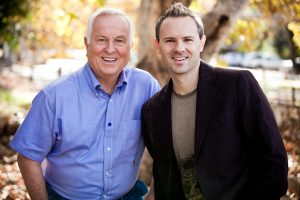
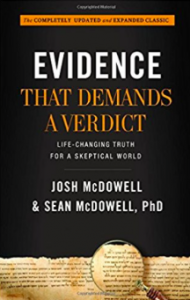
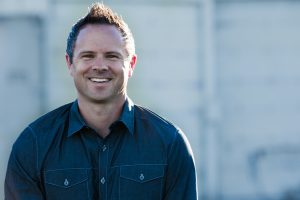
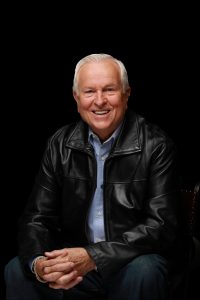
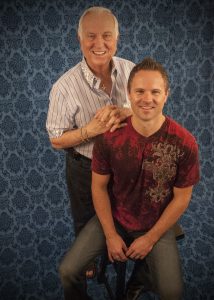
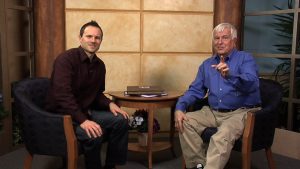


I followed your ministry and attended a couple of your banquets in Dallas, many years ago, and have a picture made with you. Still have your Secret of Loving tape, and so good to know you have raised a fine Christian son joining you in ministry. I read my Jesus Calling book through once, and am reading thru it again. Great little book. I am 87 and love the Lord and my church.